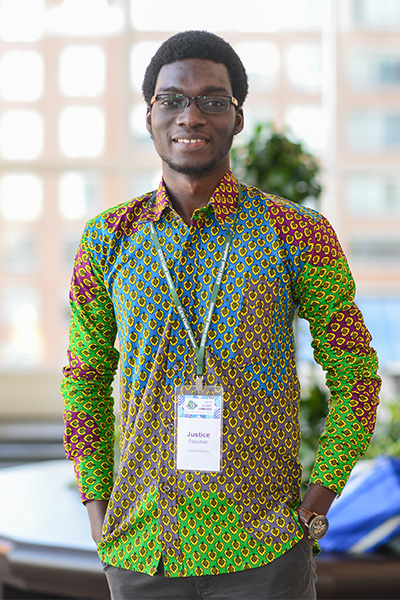
November 4, 2018
According to the International Labor Organization, over 192 million people the world over are unemployed, and this number is expected to continue to rise steadily over time.
Essentially, there are not enough job openings for the growing number of people entering the job market.
In Ghana, where nearly 48% of the youth, under 24 are unemployed, the government continues to explore ways of addressing this phenomenon. One of such initiatives, the Nation’s Builders Corps, was inaugurated in October 2018, with the primary goal of creating employment avenues and opportunities for young graduates.
For senior Electrical Engineering student Justice Essuman, one of the ways to help solve this problem is through start-ups.
“Employment worldwide has been at an all-time low,” he stated in a paper submitted to the World Bank. “The best solution developed for the problem has been the interest and studies surrounding start-ups and new enterprises. Most countries are now putting in place measures to help people with viable ideas start their own companies or organizations. The essence is to create new jobs, promote competition and spur innovation.”
Justice’s paper was one of three selected out of over 600 entries, as part of a World Bank-run competition held for university and college students to propose real-life examples of how governments, cities, firms, individuals, or any other actors can take advantage of opportunities created by technology and the future of work.
In the paper, he also compared how successful economies create enabling environments for start-ups, and made suggestions for how developing economies can take advantage of this wave.
“Countries can benefit from the start-up wave in many ways,” he shared. “For developing countries especially, there is the need to refine the skillset of the labor market by restructuring the educational curriculum for basic, secondary and tertiary educational institutions. There should be an unrelenting emphasis on Design Thinking, Problem Solving, and Entrepreneurship. The system should be capable enough to provide important lessons on these areas and how to translate the knowledge into building entrepreneurial ventures that have a better chance at flourishing”
Click to read Justice’s paper. On graduating, Justice hopes to help start a charging network company to welcome electric vehicles to Africa.
Share this story
